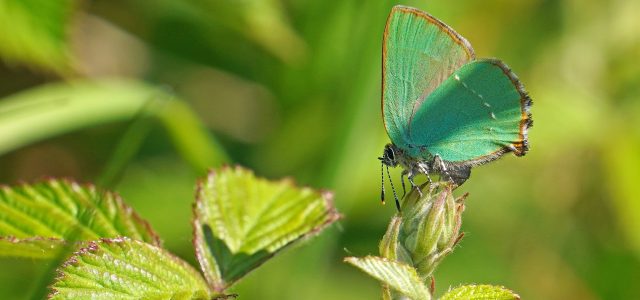
NATURE CHALLENGE
Common and rare wildlife and plant species have been recorded across Lancashire for a worldwide challenge spanning six continents
As part of a staggering, collaborative effort by people across the globe, more than 1.6 million new wildlife records were collected as part of this year’s City Nature Challenge.
In Lancashire 115 people set out to observe and record wildlife in their gardens, parks and local nature spots, either on their own or as part of a wildlife recording event. Between them they collected an incredible 3,845 new records for wildlife, logging 979 different species of plant, animal and fungus.
City Nature Challenge is an international wildlife event organised by San Francisco’s California Academy of Sciences and the Natural History Museum of Los Angeles.
This year, over four days, more than 67,220 individuals joined the wildlife recording effort, spanning more than 400 cities across six continents.
Charlotte Varela, Marketing Officer for Lancashire Wildlife Trust and City Nature Challenge organiser for Lancashire, said: “Lancashire has been taking part in City Nature Challenge for three years now, and each time it’s just brilliant to see so many people taking notice of nature where they live.
“You don’t have to go out into the countryside to connect with wildlife – you can do it in your garden, in your house, in your local park or even right in the city. You never know what you might find and it’s so encouraging to see people taking a second look at the ‘every-day’ creatures they might otherwise have overlooked.”
Some wildlife highlights from Preston’s City Nature Challenge records include an early purple orchid in Grimsargh, a goosander on the River Ribble and great crested grebes on Preston Marina. Other records included characteristic spring species like chiffchaff, wild garlic and bluebells, alongside overlooked plants like red dead-nettle. Unlike the common nettle, red dead-nettle doesn’t sting, and it provides food for many insects, including the red mason bee, bumblebees and caterpillars of the garden tiger, white ermine and angle shades moths.
In Fylde, coastal wildlife recorders logged interesting sightings of thornback ray egg cases and sea potatoes (a type of urchin) that had washed up on the beach. In the sand dunes, participants recorded sea rocket (a member of the cabbage family with delicate pink blooms) and sea holly, which has blue, thistle-like flower-heads.
It doesn’t matter whether the wildlife is common or rare – all up-to-date wildlife records are vital for nature conservation in Preston, Fylde and beyond. But, across Lancashire, so many important spaces for nature are still lacking in wildlife records. Detailed wildlife records help organisations like Lancashire Wildlife Trust, gain a deeper understanding of how wildlife is faring, when it needs help and how it is responding to things like pollution, climate change and habitat loss.
Recording wildlife is also a great way to expand your wildlife knowledge, slow down and take notice of your surroundings. You really never know what you might find.
Just because City Nature Challenge is over for another year doesn’t mean that you can’t get out and record what you see. Don’t forget to share what you find with your local record centre and tag the Wildlife Trust for Lancashire, Manchester and North Merseyside in your wildlife photos on social media.
The Wildlife Trust for Lancashire, Manchester and North Merseyside is dedicated to the protection and promotion of the wildlife in the region. It manages around 40 nature reserves and 20 local nature reserves covering acres of woodland, wetland, upland and meadow.

